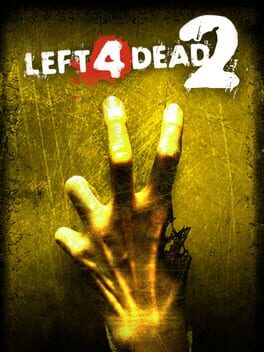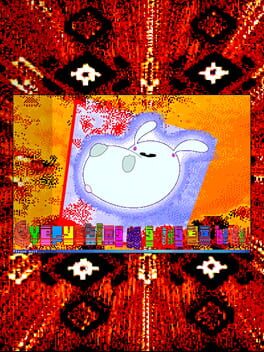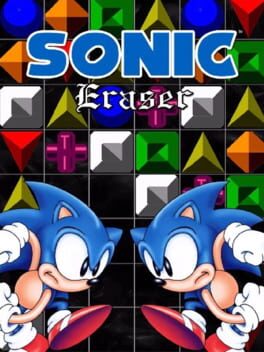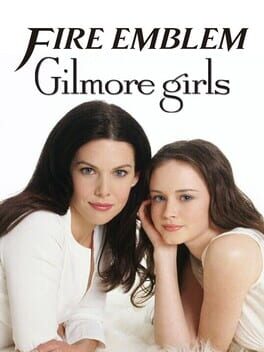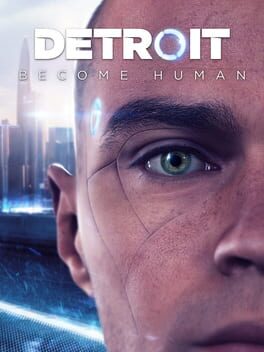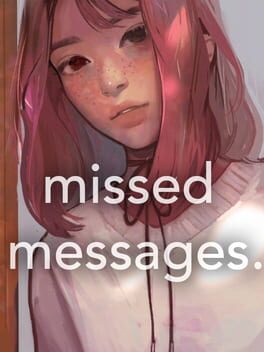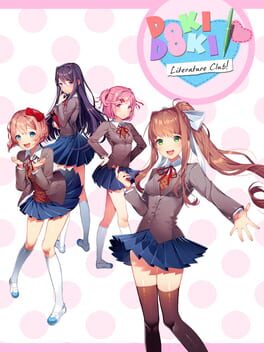25 Reviews liked by earwig
Tender Frog House
2020
It is perhaps an all too common occurrence to encounter those who would seek to use the medium of video games as a means of exploring the complex and multifaceted theories of Theodor Adorno, particularly his ideas surrounding aesthetic theory and the ways in which it relates to the perpetuation of neoliberal hegemony. While it is certainly true that video games, like any other cultural form, can be analyzed and interpreted through various theoretical lenses, it is important to recognize that such an approach is ultimately futile, as it fails to take into account the complex and nuanced nature of both video games and Adorno's theories.
To begin with, it is essential to acknowledge the fact that video games are a highly diverse and multifaceted medium, encompassing a wide range of genres, themes, and gameplay mechanics. As such, it is impossible to explore the aesthetic theories of Adorno in any meaningful way through the lens of "wholesome" video games alone, as these games represent only a small fraction of the medium as a whole. To truly understand the ways in which Adorno's ideas might be relevant to the medium of video games, one would need to consider a much broader range of games, including those that might be considered more "edgy" or "provocative" in nature.
Furthermore, it is important to recognize that Adorno's theories, particularly those related to aesthetic theory, are highly complex and nuanced, and cannot be fully understood or appreciated through a superficial analysis of any single cultural form. Adorno's ideas are rooted in a deep and critical engagement with the broader social, cultural, and economic context in which they were developed, and to truly understand their relevance and significance, one must consider these broader contexts as well.
Finally, it is essential to acknowledge the fact that video games, like any other cultural form, are not inherently political or ideological, and that they can be used to convey a wide range of ideas and perspectives. While it is certainly possible to analyze the ways in which video games might reflect or challenge existing power structures and ideologies, it is important to approach this analysis with a critical and nuanced understanding of the context in which the games are produced and consumed. To suggest that the medium of video games can be used as a means of exploring the intricacies of Adorno's aesthetic theory and the ways in which it relates to neoliberal hegemony is to oversimplify and misunderstand both the medium and the theory in question. So, in conclusion, it is ultimately futile to attempt to explore the aesthetic theory behind neoliberal hegemony through the medium of so-called "wholesome" video games, as such an approach fails to take into account the complex and multifaceted nature of both the medium and the theory in question.
To begin with, it is essential to acknowledge the fact that video games are a highly diverse and multifaceted medium, encompassing a wide range of genres, themes, and gameplay mechanics. As such, it is impossible to explore the aesthetic theories of Adorno in any meaningful way through the lens of "wholesome" video games alone, as these games represent only a small fraction of the medium as a whole. To truly understand the ways in which Adorno's ideas might be relevant to the medium of video games, one would need to consider a much broader range of games, including those that might be considered more "edgy" or "provocative" in nature.
Furthermore, it is important to recognize that Adorno's theories, particularly those related to aesthetic theory, are highly complex and nuanced, and cannot be fully understood or appreciated through a superficial analysis of any single cultural form. Adorno's ideas are rooted in a deep and critical engagement with the broader social, cultural, and economic context in which they were developed, and to truly understand their relevance and significance, one must consider these broader contexts as well.
Finally, it is essential to acknowledge the fact that video games, like any other cultural form, are not inherently political or ideological, and that they can be used to convey a wide range of ideas and perspectives. While it is certainly possible to analyze the ways in which video games might reflect or challenge existing power structures and ideologies, it is important to approach this analysis with a critical and nuanced understanding of the context in which the games are produced and consumed. To suggest that the medium of video games can be used as a means of exploring the intricacies of Adorno's aesthetic theory and the ways in which it relates to neoliberal hegemony is to oversimplify and misunderstand both the medium and the theory in question. So, in conclusion, it is ultimately futile to attempt to explore the aesthetic theory behind neoliberal hegemony through the medium of so-called "wholesome" video games, as such an approach fails to take into account the complex and multifaceted nature of both the medium and the theory in question.
Left 4 Dead 2
2009
Sonic Eraser
1991
Warning: This essay contains visceral descriptions of mental illness. What was initially intended as more of a critique of The Last of Us Part 2’s narrative became something much more personal, and I don’t want to give a false impression of what this is based on the website it’s posted to. To reiterate, this is intensely personal. Proceed with caution.
What would you do if your life’s purpose was pulled out from under you? How do we find solace in a world that seems to revel in taking everything it can from you? Is it worth living when stability is the only thing protecting you from cold uncertainty? Fundamentally, these questions define both The Last of Us and The Last of Us Part 2. While these extremely open-ended questions are answered in appropriately differing ways in both games, they are used as the backdrop to frame almost every character action in them. In the same way that Joel’s yearning to maintain the only thing that resembles stability in his life endeared many players to the first game, Ellie’s quest of seemingly aimless vengeance polarized many when playing its sequel. It tests players’ willingness to go through the same things its characters go through rather than taking more than a few safe roads. It helped me realize my own answers to the questions it asks of Joel and Ellie, and it’s difficult for me to go more than a day without thinking about them. I love The Last of Us, but The Last of Us Part 2 is bolder, more poignant, and unforgettable.
Despite this essay primarily being a gushfest about The Last of Us Part 2, I still believe the first game displays a large amount of character complexity, but I think the response to its narrative was born out of a character that one can easily relate to. The only thing that stands between Joel and his closest loved one is three people that are about to kill her. Would you not do the same to preserve the last person tethering you to sanity? Personally, I believe that there are very few people in the world who wouldn’t make the same decision in Joel’s shoes. This isn’t to say that this makes Joel’s character simple or easily read, it makes him painfully human. Through all of the murder and zombies, we all see a bit of ourselves in Joel. Framed ambiguously, this contributed greatly to the success of The Last of Us’s narrative with a wide audience. It was a perfect storm of relatability, shock value, fuel for disingenuous water cooler talk, and just plain good character writing. People talk about the negative effect that The Last of Us had on Triple A games, but as far as I’m concerned, studios should take more cues from its simple yet effective writing.
It seemed to most people that The Last of Us Part 2 was a shot into left field compared to the first game, but where else could the series feasibly go? The events of its narrative are bold for high budget games, but I struggle to think of a more natural continuation from the first game’s story. Joel even foreshadows the events of the second game when he tells Ellie how broken he was after losing Sarah. We’re not privy to the 20 years between Joel’s loss and him meeting Ellie. The theme of retaliation against a brutal world is obscured by this time skip to show its evolution: finding solace in what little mercy the world has given you. In that way, both games in this series represent two sides of the same coin. There is solace to be found in Abby’s part of the game, and her story is kind of like an abridged version of Joel’s story in the first game. This time Naughty Dog even included the part where the character finds little meaning in a path defined by hate, almost to yell at the player what they were supposed to learn from Joel. There is much to be said about Abby and how her life is destroyed in different ways compared to Ellie, but honestly I’m not extremely interested in her as a character. I like it in the same way I like the first game, but it doesn’t affect me in a strong way. Ellie’s story wouldn’t work as well without Abby’s, but its value to me is almost entirely predicated on how it improves Ellie’s character.
Perhaps my initial response to this game was so different because of how I see Ellie. Ellie, in my experience, is the closest any fictional character has ever come to accurately portraying my mental illness. The willingness to go to great lengths to show people that the world can be just as grim to them as it is to you, even at the expense of your own wellbeing, hit impossibly close to home for me. My depression isn’t defined by withdrawal, but lashing out at others so they can feel the same pain I do. The fear that everyone will either abandon me of their own volition, or do so before I make peace with it is one that permeates my waking thoughts. I’m not proud of this urge, as it gnaws its way into the way I interact with others. It imparts a hostility to my interactions with others, as my inert response is that they will leave me or hate me. It doesn’t sit well with me when I gain a sick satisfaction out of pushing people away, and just ending it before I get too attached. The few people that I can’t push away despite my best efforts are the only stability I have, and I’m not sure what I’ll do when I lose them. So when Ellie returns to the world all the violence it has shown her because it took away her stability, it made more sense to me than anything anyone has done in any other story. It spoke to me like no doctor or therapist or counselor has ever come close to doing before. All I needed to know was that I wasn’t alone in what I felt; that all the emotions I feel so ashamed of were validated in a strange way, and done with so much uncomfortable accuracy. When the end of the game revealed its hand, and Ellie was left with exactly what she had feared the most, I felt more fear than I had in any enemy encounter. It was as if the writers of the game dispelled the facade with which they were communicating to me through, and told me the bitter truth of my life. This game’s narrative certainly didn’t fix me, but it allowed me to accept that I’m not the only person who bears this curse. It’s the curse of remembering people through their polar moments, only recognizing the best and worst that someone has shown you. It’s focusing on that bad until you lose them, and then reaching out desperately for the good that you ignored the whole way.
I’ve attempted to rationalize The Last of Us Part 2 being my favorite game through the lens of its holistic qualities, believing that its characters, themes, and gameplay were markedly better than many of its competitors. It was my attempt to bridge the gap between what I knew as the most profoundly touching piece of media I had ever consumed, and what most others saw as a solid third person action game. The truth is that for most people, that’s exactly what this game will be. Like most Naughty Dog games, its appeal comes from the combination of many things done well. There will always be a stealth game with more depth, a more complex character study, and a more focused narrative. It’s easy to be ashamed of a story you like almost strictly based on its emotional resonance with you. Recognizing that it’s that story’s ability to reach out and comfort you beyond the very text that contains it is when you let go of that shame, and it’s where that story’s true value lies. Allow yourself to love and be loved by the stories you read and the characters you meet.
What would you do if your life’s purpose was pulled out from under you? How do we find solace in a world that seems to revel in taking everything it can from you? Is it worth living when stability is the only thing protecting you from cold uncertainty? Fundamentally, these questions define both The Last of Us and The Last of Us Part 2. While these extremely open-ended questions are answered in appropriately differing ways in both games, they are used as the backdrop to frame almost every character action in them. In the same way that Joel’s yearning to maintain the only thing that resembles stability in his life endeared many players to the first game, Ellie’s quest of seemingly aimless vengeance polarized many when playing its sequel. It tests players’ willingness to go through the same things its characters go through rather than taking more than a few safe roads. It helped me realize my own answers to the questions it asks of Joel and Ellie, and it’s difficult for me to go more than a day without thinking about them. I love The Last of Us, but The Last of Us Part 2 is bolder, more poignant, and unforgettable.
Despite this essay primarily being a gushfest about The Last of Us Part 2, I still believe the first game displays a large amount of character complexity, but I think the response to its narrative was born out of a character that one can easily relate to. The only thing that stands between Joel and his closest loved one is three people that are about to kill her. Would you not do the same to preserve the last person tethering you to sanity? Personally, I believe that there are very few people in the world who wouldn’t make the same decision in Joel’s shoes. This isn’t to say that this makes Joel’s character simple or easily read, it makes him painfully human. Through all of the murder and zombies, we all see a bit of ourselves in Joel. Framed ambiguously, this contributed greatly to the success of The Last of Us’s narrative with a wide audience. It was a perfect storm of relatability, shock value, fuel for disingenuous water cooler talk, and just plain good character writing. People talk about the negative effect that The Last of Us had on Triple A games, but as far as I’m concerned, studios should take more cues from its simple yet effective writing.
It seemed to most people that The Last of Us Part 2 was a shot into left field compared to the first game, but where else could the series feasibly go? The events of its narrative are bold for high budget games, but I struggle to think of a more natural continuation from the first game’s story. Joel even foreshadows the events of the second game when he tells Ellie how broken he was after losing Sarah. We’re not privy to the 20 years between Joel’s loss and him meeting Ellie. The theme of retaliation against a brutal world is obscured by this time skip to show its evolution: finding solace in what little mercy the world has given you. In that way, both games in this series represent two sides of the same coin. There is solace to be found in Abby’s part of the game, and her story is kind of like an abridged version of Joel’s story in the first game. This time Naughty Dog even included the part where the character finds little meaning in a path defined by hate, almost to yell at the player what they were supposed to learn from Joel. There is much to be said about Abby and how her life is destroyed in different ways compared to Ellie, but honestly I’m not extremely interested in her as a character. I like it in the same way I like the first game, but it doesn’t affect me in a strong way. Ellie’s story wouldn’t work as well without Abby’s, but its value to me is almost entirely predicated on how it improves Ellie’s character.
Perhaps my initial response to this game was so different because of how I see Ellie. Ellie, in my experience, is the closest any fictional character has ever come to accurately portraying my mental illness. The willingness to go to great lengths to show people that the world can be just as grim to them as it is to you, even at the expense of your own wellbeing, hit impossibly close to home for me. My depression isn’t defined by withdrawal, but lashing out at others so they can feel the same pain I do. The fear that everyone will either abandon me of their own volition, or do so before I make peace with it is one that permeates my waking thoughts. I’m not proud of this urge, as it gnaws its way into the way I interact with others. It imparts a hostility to my interactions with others, as my inert response is that they will leave me or hate me. It doesn’t sit well with me when I gain a sick satisfaction out of pushing people away, and just ending it before I get too attached. The few people that I can’t push away despite my best efforts are the only stability I have, and I’m not sure what I’ll do when I lose them. So when Ellie returns to the world all the violence it has shown her because it took away her stability, it made more sense to me than anything anyone has done in any other story. It spoke to me like no doctor or therapist or counselor has ever come close to doing before. All I needed to know was that I wasn’t alone in what I felt; that all the emotions I feel so ashamed of were validated in a strange way, and done with so much uncomfortable accuracy. When the end of the game revealed its hand, and Ellie was left with exactly what she had feared the most, I felt more fear than I had in any enemy encounter. It was as if the writers of the game dispelled the facade with which they were communicating to me through, and told me the bitter truth of my life. This game’s narrative certainly didn’t fix me, but it allowed me to accept that I’m not the only person who bears this curse. It’s the curse of remembering people through their polar moments, only recognizing the best and worst that someone has shown you. It’s focusing on that bad until you lose them, and then reaching out desperately for the good that you ignored the whole way.
I’ve attempted to rationalize The Last of Us Part 2 being my favorite game through the lens of its holistic qualities, believing that its characters, themes, and gameplay were markedly better than many of its competitors. It was my attempt to bridge the gap between what I knew as the most profoundly touching piece of media I had ever consumed, and what most others saw as a solid third person action game. The truth is that for most people, that’s exactly what this game will be. Like most Naughty Dog games, its appeal comes from the combination of many things done well. There will always be a stealth game with more depth, a more complex character study, and a more focused narrative. It’s easy to be ashamed of a story you like almost strictly based on its emotional resonance with you. Recognizing that it’s that story’s ability to reach out and comfort you beyond the very text that contains it is when you let go of that shame, and it’s where that story’s true value lies. Allow yourself to love and be loved by the stories you read and the characters you meet.
Outer Wilds
2019
Missed Messages.
2019
why must every western vn about "the queer experience" be the exact same generic lesbian tenderqueer melodramatic trite over and over again. having seen so much shit exactly like this i felt like i already knew everything about it before playing it, and i basically did. same generic uwu pastel soft aesthetic, same generic boring music, same boring story.
im 100% convinced that people only consume so much of this shit because of some vague notion of "muh representation" and instead of branching out into more unique and interesting shit they just keep retreading the same ground over and over again, like some gay feeback loop. us homosexes deserve better media to represent us. yall complain about dream daddy n the like, and rightfully so, but is this really much better?
im 100% convinced that people only consume so much of this shit because of some vague notion of "muh representation" and instead of branching out into more unique and interesting shit they just keep retreading the same ground over and over again, like some gay feeback loop. us homosexes deserve better media to represent us. yall complain about dream daddy n the like, and rightfully so, but is this really much better?
i know im years late to this conversation but uh, whats scary about this game?
this game markets itself as psychological horror but literally nothing that happens in it is remotely scary in any sense. Like what, some eyeballs move? A jpeg of some anime girl hanging there? Shittily animated amime girl stabbing herself? Anime girl delete files and talks to me? Beyond any other complaints I could have about this game, it just doesnt work as a horror game whatsoever because the game needs to tell me at the beginning that it is one.
Bonus points for some interesting technical stuff under the hood tho, and having specific "scares" happen depending on if youre recording or not is pretty genius.
this game markets itself as psychological horror but literally nothing that happens in it is remotely scary in any sense. Like what, some eyeballs move? A jpeg of some anime girl hanging there? Shittily animated amime girl stabbing herself? Anime girl delete files and talks to me? Beyond any other complaints I could have about this game, it just doesnt work as a horror game whatsoever because the game needs to tell me at the beginning that it is one.
Bonus points for some interesting technical stuff under the hood tho, and having specific "scares" happen depending on if youre recording or not is pretty genius.

